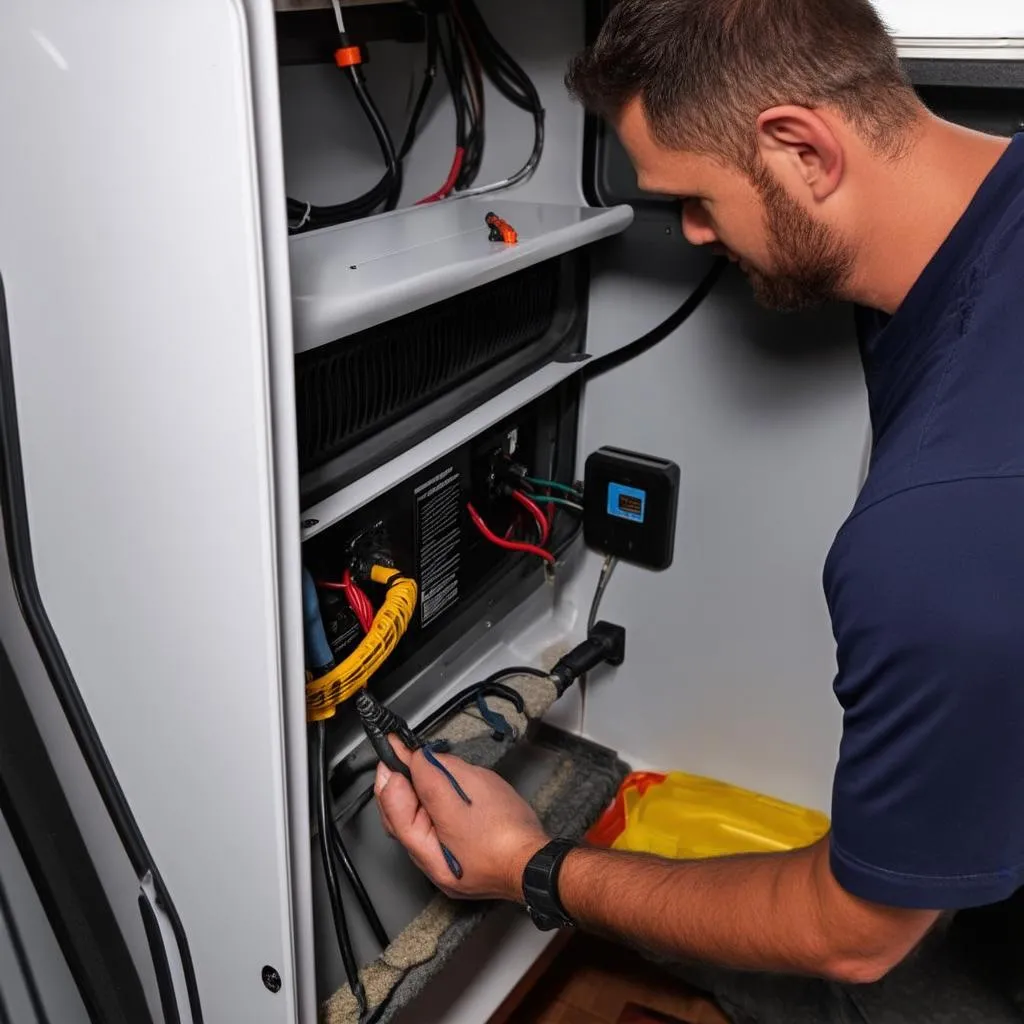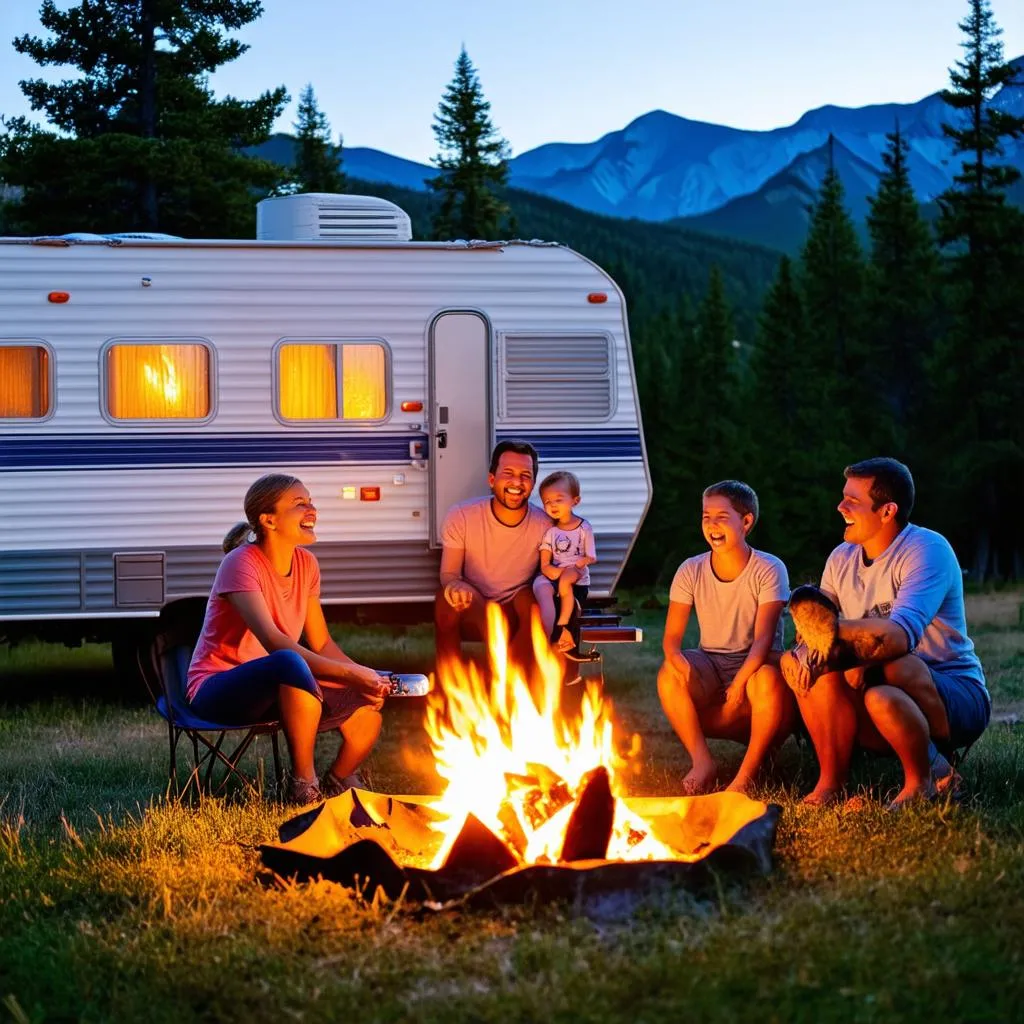“The journey of a thousand miles begins with a single step,” Lao Tzu wisely said. And if that journey involves a travel trailer, a common question arises: do you really need an inverter?
Picture this: you’re parked at a scenic overlook in Yosemite National Park, the sun dipping below Half Dome, painting the sky in fiery hues. You’re craving a hot cup of coffee from your trusty electric kettle, but alas, no power outlet! An inverter might just be your new best friend.
Understanding the Role of an Inverter
In essence, an inverter acts as a magical power converter, transforming your trailer’s 12-volt DC power from the battery into the 120-volt AC power that most household appliances use. This means you can enjoy the comforts of home – like charging laptops, running a blender for those sunset margaritas, or watching your favorite movie on a rainy day – even when you’re miles from a campground hookup.
Types of Inverters: Choosing Your Powerhouse
- Modified Sine Wave Inverters: Budget-friendly and suitable for less sensitive devices like lights and phone chargers.
- Pure Sine Wave Inverters: A bit pricier, but they provide cleaner power, ideal for sensitive electronics like laptops and CPAP machines.
Weighing the Pros and Cons
Pros: Freedom and Convenience
- Off-grid Power: Enjoy the freedom of boondocking in remote locations without sacrificing modern comforts.
- Emergency Backup: In case of power outages, an inverter can keep essential appliances running.
- Convenience on the Go: Charge devices, use power tools, or even run a small fan while driving.
Cons: Cost and Considerations
- Initial Investment: Inverters can range in price depending on wattage and type.
- Battery Drain: Using power-hungry appliances can quickly drain your trailer’s battery bank.
- Installation: While some inverters are plug-and-play, others might require professional installation.
Planning Your Power Needs
Before rushing to buy the biggest inverter you can find, take some time to assess your power requirements:
- List Your Appliances: Make a list of all the devices you plan to use in your travel trailer.
- Check Wattage: Note the wattage of each appliance. You can usually find this information on a label or by doing a quick online search.
- Calculate Total Wattage: Add up the wattage of all the appliances you want to run simultaneously.
- Choose Inverter Size: Select an inverter that can comfortably handle your peak wattage needs.
Inverter FAQs: Your Burning Questions Answered
Do I need an inverter if I always stay at campgrounds with hookups?
While not essential, an inverter can still be beneficial for those times you’re on the road or want to conserve campground power.
Can I run my air conditioner with an inverter?
Running an air conditioner requires a very high wattage inverter and a substantial battery bank. It’s generally not recommended for extended periods.
How long will my battery last with an inverter?
Battery life depends on the size of your battery bank, the wattage of your appliances, and usage patterns.
 Installing an Inverter in a Travel Trailer
Installing an Inverter in a Travel Trailer
Travel Trailer Feng Shui: Harmonizing Your Home on Wheels
In Feng Shui, your travel trailer becomes a microcosm of your home, and creating a harmonious energy flow can enhance your travel experiences.
- Declutter and Organize: A clutter-free space promotes positive energy flow. Keep your trailer tidy and well-organized.
- Natural Elements: Incorporate natural elements like plants, crystals, or wooden accents to bring in grounding and calming energy.
- Color Palette: Choose calming colors like blues, greens, or earth tones to create a serene atmosphere.
Planning Your Next Adventure? Visit travelcar.edu.vn
Ready to hit the open road? Visit travelcar.edu.vn for travel inspiration, tips, and resources to plan your next unforgettable adventure. Whether you’re dreaming of exploring the scenic Pacific Coast Highway or venturing off the beaten path in the Grand Canyon, we’ve got you covered.
 A family enjoying their time in front of a travel trailer at a campsite
A family enjoying their time in front of a travel trailer at a campsite
Embrace the Journey
Ultimately, the decision of whether or not an inverter is necessary for your travel trailer depends on your individual needs and travel style. By carefully considering your power requirements and weighing the pros and cons, you can make an informed choice that enhances your travel experiences. Remember, the journey is just as important as the destination. Safe travels!